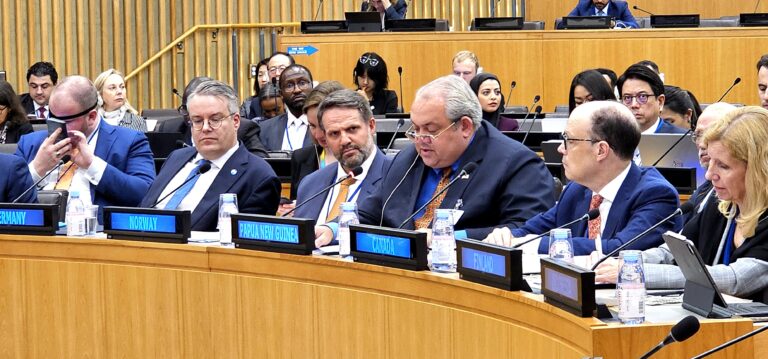Papua New Guinea is the latest state to ratify the Comprehensive Nuclear Test Ban Treaty (CTBT).
The CTBT is an international treaty that aims to ban all nuclear explosions for both civilian and military purposes. The objective is to curb the development and spread of nuclear weapons by making it illegal for countries to conduct nuclear tests, thus contributing to global security.
The 11th meeting of the Friends of the Comprehensive Nuclear-Test-Ban Treaty (CTBT) took place on 24 September 2024 on the margins of the 79th session of the United Nations General Assembly (UNGA) at UN headquarters in New York.
The meeting brought together key international figures, including Australia’s Foreign Minister Penny Wong and UN Under-Secretary General Izumi Nakamitsu, to discuss the future of nuclear safety and disarmament.
In his address, Foreign Affairs Minister for Papua New Guinea, Justin Tkatchenko, highlighted the pressing need for global cooperation in nuclear disarmament.
Tkatchenko says the participation of Papua New Guinea at the CTBT meeting is a vital effort towards ensuring peace and security for current and future generations reaffirming the country’s commitment to the CTBT having ratified the treaty on the 13th of March 2024. This step reflects the nation’s dedication to promoting safer and more controlled uses of nuclear technology for the benefit of humanity.
In his remarks, Tkatchenko addressed the historical and ongoing consequences of nuclear testing in the Pacific, pointing to events such as the Moruroa Atolls testing and the Fukushima nuclear disaster. He emphasized the need for a coordinated response to safeguard the region’s environment and the health of its communities. “Our region and ocean have been and continue to be on the receiving end of the consequences of actions we are neither a part of nor benefit from,” he stated.
Highlighting the unique challenges of the Pacific nations, Tkatchenko called for solidarity among Pacific neighbors yet to ratify the CTBT. He asserted that the region’s identity and sovereignty are linked to the ocean, which has faced threats not only from nuclear testing but also from pollution and industrial dumping.
To date, 187 countries have signed the treaty, and 178 have ratified it. However, for the CTBT to enter into force, it requires ratification by 44 specific countries that participated in the negotiations, known as Annex 2 states. As of October 2023, several key states of the Annex 2 countries, including the United States, China, India, and Pakistan, have not ratified the treaty.

